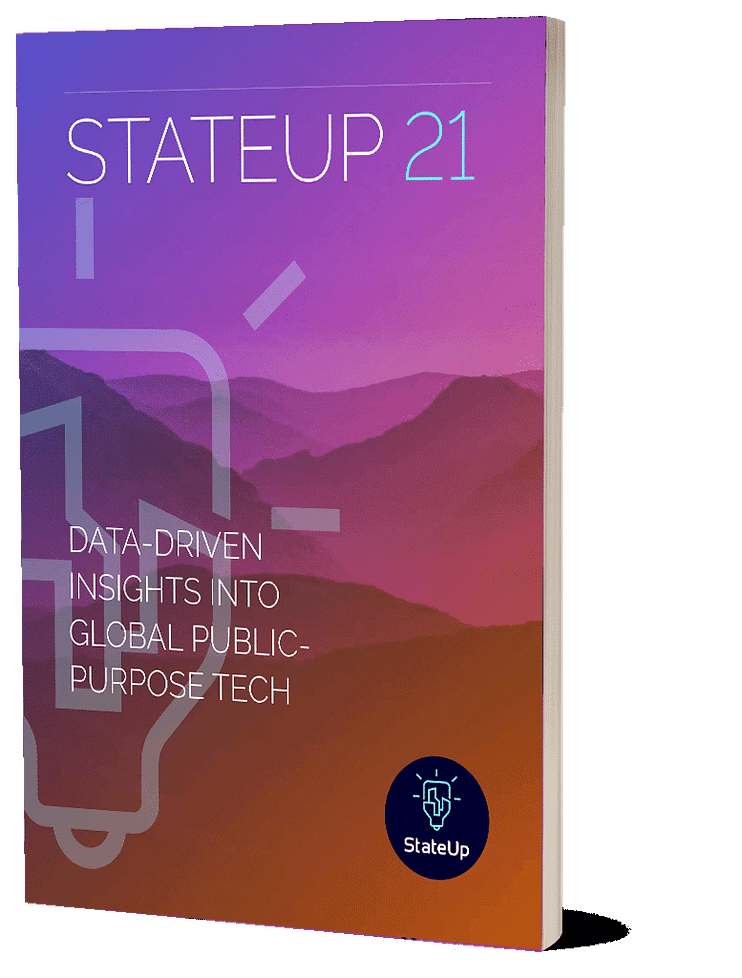Data-driven decision making, Infrastructure and Built Environment, Urban and Local needs
UrbanFootprint can help policymakers devise an implementation strategy for post-pandemic recoveryABOUT URBANFOOTPRINT
- Region
- public problem areas
- Company Summary
- Profile
- Plans for 2022
- Who should connect with this company?
US & Canada
Data-driven decision making, Infrastructure and Built Environment, Urban and Local needs
- Founded in 2014
- Total funding: $18 million; Series A ($11.5 million in February 2020)
- Investors include Social Capital, Valo Ventures, and Radicle Impact
- HQ in Berkeley, California
- 11-50 FTEs
- Key clients/partners: Community-based advocacy and relief organizations including Greater Baton Rouge Food Bank, Los Angeles Local Initiatives Support Corporation (LISC LA), Louisiana Fair Housing Alliance, and Oklahoma Food Bank; and state and local agencies including California Office of Emergency Services (CalOES), the Louisiana Governor's Offices, the California Department of Food and Agriculture (CDFA), and the California Department of Housing and Community Development (HCD)
In October, the US Congress approved a $1 trillion infrastructure bill. Over half of these funds will go towards new federal spending items, from repairing and constructing roads and bridges ($110 billion) and expanding high-speed internet access ($65 billion) to improving airports ($25 billion) and revamping rail services ($66 billion). A bipartisan group of lawmakers spearheaded this bill, reflecting the broad consensus in the US that infrastructure plays a key social and economic role in President Biden’s “Build Back Better” framework.
This allocation of funding is just a first step. Policymakers and civil servants now face the challenge of implementing these ambitious plans. UrbanFootprint, a California-based startup, may be able to help.
The company has developed a series of digital tools to help urban planners and public officials make data-driven decisions. Its Analyst platform contains hundreds of datasets (e.g., transit lines, flood and fire risk, poverty indexes) that can be overlaid on top of a map. Users test different scenarios to better understand the impacts of policy decisions like land use changes and mobility investments. Through the platform, users can export polished maps and datasets to share their findings with stakeholders.
Another product from UrbanFootprint, Explorer, has fewer features but is more straightforward to use. Through its web-based portal, users can track data trends, conduct risk assessments, and make more data-driven decisions around initiatives like where to locate vaccine or food distribution sites. UrbanFootprint asserts that these platforms help governments “prioritize infrastructure investments to bolster community resilience” while simultaneously analysing the downstream impacts of these resource allocations.
An integral part of UrbanFootprint’s offering is the data itself. Co-founders Joe DiStefano and Peter Calthorpe noted in their Series A announcement that the funding will enable them to deploy more machine learning algorithms “to increase accuracy, coverage, and localisation” of their datasets. UrbanFootprint has already leveraged machine learning to collect and analyse the data fuelling their maps for food security and eviction risks. Users can also integrate UrbanFootprint’s data into their own application through an API.
Expand its offerings more broadly into new verticals, including solutions for the energy industry to optimize infrastructure investments for minimal risk to assets, environment, and communities; and for the finance industry to improve risk-adjusted returns in support of a more sustainable economy.
Urban planners, energy providers, or government agencies that are looking for insights about urban planning, climate change, and community resilience.

GET ACCESS TO THE FULL REPORT
- Discover data-driven insights into key PPT subsectors and technologies
- Learn how investment into PPT is changing
- Read the full StateUp 21 member profiles
